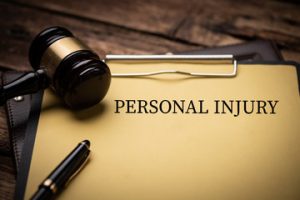Every click online starts with a search. SEO services are the unseen force that guides those searches to their destination. They shape how people discover, interact with, and trust online content. As digital spaces evolve, so does the science behind visibility, turning SEO from a technical tactic into a comprehensive growth strategy.

Modern SEO is no longer about stuffing keywords into a page. It is about creating meaningful digital experiences that align with how people search and what they value. Search engines now evaluate intent, context, and authority before ranking pages. That means effective SEO must go beyond the basics and connect strategy with psychology, behavior, and technology.
One of the most transformative shifts in SEO is the emphasis on user intent. Algorithms no longer reward generic content or manipulative tactics. Instead, they prioritize answers that meet real human needs. Successful SEO services therefore begin with understanding what people are looking for and how they phrase their searches.
This focus on intent changes how content is crafted. Instead of targeting single keywords, SEO now revolves around search journeys and semantic relevance. Pages must answer layered questions and anticipate related inquiries. A well-optimized page acts as a guide, leading users from curiosity to clarity without friction.
Technical performance has also become a crucial part of SEO success. Search engines factor in site speed, mobile responsiveness, and structural clarity when ranking results. Even the best content can fail if a site loads slowly or breaks on different devices. SEO services now involve close collaboration between developers, designers, and strategists to ensure seamless performance.
Link-building, once a numbers game, has evolved into a quality-driven discipline. Search engines now evaluate the trustworthiness and relevance of referring sources rather than sheer quantity. This has turned link-building into a relationship-focused strategy centered on value exchange and reputation. Earning high-quality links means producing content that others want to reference and share.
Voice search has quietly transformed the way people query the web. With spoken queries, language becomes more conversational and question-oriented. SEO services now include optimizing for natural speech patterns, featured snippets, and concise answers. Businesses that ignore this shift risk missing a growing portion of organic traffic.
Local optimization has become another critical pillar of modern SEO. People often search for solutions near them, and algorithms prioritize geographically relevant results. Effective SEO services tailor strategies to capture this local intent, ensuring visibility within defined communities and regions. This approach connects businesses with audiences that are ready to act.
User experience is now intertwined with search visibility more than ever. Engagement metrics like bounce rate, time on page, and click-through rate influence how algorithms evaluate relevance. SEO is no longer just about being found; it’s about keeping users engaged once they arrive. That means intuitive navigation, compelling visuals, and easy-to-digest content are part of the optimization process.
The rise of artificial intelligence has revolutionized how search engines understand and rank information. Machine learning models interpret nuance, context, and quality in ways that mimic human judgment. SEO services must adapt by producing content that resonates not just with algorithms but with real people. This requires authenticity, depth, and a clear value proposition.
Content remains the backbone of any SEO effort, but the way it’s created and delivered has changed. It’s no longer enough to publish large volumes of generic material. Search engines now favor authoritative, well-researched, and frequently updated content. Effective SEO strategies integrate editorial planning, keyword mapping, and audience research into a cohesive content ecosystem.
Video and visual search are expanding the definition of optimization. Search engines increasingly index multimedia assets, and users are searching for images and clips as often as text. SEO services now include optimizing file names, metadata, transcripts, and structured data for non-text content. This ensures visibility across diverse search surfaces.
The role of structured data and schema markup has also grown in importance. These invisible signals help search engines understand context and display richer results. They power features like knowledge panels, FAQs, and product carousels. By implementing structured data, SEO strategies enhance visibility beyond standard listings.
Mobile-first indexing has shifted the focus of optimization entirely. Search engines now crawl and rank sites based on their mobile experience. SEO services must ensure that content is fully optimized for smaller screens without sacrificing depth or usability. Responsive design, fast loading times, and mobile-friendly layouts are no longer optional — they are prerequisites.
Behavioral analytics plays a vital role in refining SEO strategies. By studying how users interact with content, marketers can identify patterns, preferences, and points of friction. These insights guide adjustments to structure, messaging, and calls to action. SEO is increasingly driven by data, turning it into a cycle of continuous optimization rather than a one-time effort.
The competitive landscape of search has also intensified. Organic results now share space with paid ads, local packs, video carousels, and more. SEO services must strategize not just for rankings but for visibility across multiple search features. The goal is to secure as many touchpoints as possible within a single results page.
Evolving privacy standards and data regulations are reshaping SEO tactics. With less access to third-party data, first-party insights and contextual targeting are becoming crucial. SEO strategies must respect user privacy while still delivering personalized experiences. Transparency and trustworthiness are now ranking factors in their own right.
Global optimization has added another layer of complexity for businesses targeting multilingual or international audiences. SEO services now include language-specific content strategies, hreflang implementation, and cultural nuance considerations. Search is not just about language translation; it’s about relevance within different cultural contexts.
The synergy between SEO and other digital channels is stronger than ever. Social signals, email engagement, and even paid campaigns can indirectly boost organic visibility. Integrated strategies that align messaging across platforms tend to perform better overall. SEO is no longer a standalone tactic but a central pillar of a broader digital ecosystem.
E-commerce SEO presents unique challenges and opportunities. Product pages, category structures, and transactional intent require tailored strategies. Optimizing for buyer psychology, reviews, and trust signals directly influences conversions. SEO services for online stores must balance visibility with persuasion to turn search traffic into sales.
Emerging technologies like augmented reality and virtual search are shaping the future of discovery. These tools change how people find and interact with digital information. SEO will need to adapt to these new environments, optimizing not just for text and voice but for immersive experiences. The next frontier of search will blur the line between physical and digital discovery.
Even as automation tools become more advanced, the human element of SEO remains indispensable. Creativity, empathy, and critical thinking are essential for crafting content that resonates. Algorithms may guide the rules, but it is human insight that wins attention and builds loyalty. The best SEO strategies balance automation with artistry.
The future of SEO is defined by adaptability. Search engines will continue evolving, and so will user behavior. Businesses that view SEO as an ongoing journey rather than a one-time project will be best positioned for success. It’s about building authority, trust, and relevance over time.
Ultimately, SEO services are about visibility — but not just any visibility. They are about being present where it matters, delivering value when it’s needed, and building credibility that lasts. As the digital landscape becomes more competitive and complex, SEO remains the key to unlocking sustainable growth. It is not just a marketing tactic but a strategic advantage, shaping how businesses are discovered and remembered in the vast expanse of the web.
Search will continue to evolve, but its purpose remains constant: connecting people with the information, products, and solutions they seek. SEO is the bridge that makes those connections possible. And in a world where digital presence defines success, mastering that bridge is more essential than ever.



